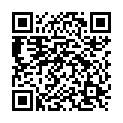|
|
|
| Module code: DFITM-W-01 |
|
|
4SU (4 hours per week) |
|
5 |
| Semester: according to optional course list |
| Mandatory course: no |
Language of instruction:
German |
Assessment:
Project (can be repeated annually)
[updated 17.09.2018]
|
DFBTO-W-01 (P620-0529) International Tourism Management, Bachelor, ASPO 01.10.2018
, semester 4, optional course
DFITM-W-01 (P620-0479) International Tourism Management, Bachelor, ASPO 01.10.2020
, optional course
BITM-W-01 (P440-0040) International Tourism-Management, Bachelor, ASPO 01.10.2013
, optional course
BITM-W-01 (P440-0040) International Tourism-Management, Bachelor, ASPO 01.10.2015
, optional course
BITM-W-01 (P440-0040) International Tourism-Management, Bachelor, ASPO 01.10.2017
, optional course
BITM-W-01 (P440-0040) International Tourism-Management, Bachelor, ASPO 01.10.2020
, optional course
|
60 class hours (= 45 clock hours) over a 15-week period.
The total student study time is 150 hours (equivalent to 5 ECTS credits).
There are therefore 105 hours available for class preparation and follow-up work and exam preparation.
|
Recommended prerequisites (modules):
None.
|
Recommended as prerequisite for:
|
Module coordinator:
Prof. Dr. Achim Schröder |
Lecturer: Prof. Dr. Achim Schröder
[updated 03.12.2020]
|
Learning outcomes:
After successfully completing this module students will be able to:
- define the special features of a touristic product and derive their implications for the management of touristic destinations,
- identify the interconnections in destination management and to explain the ability of (inter-) national destination management organisations to shape their own structures,
- systematically analyze the touristic potential of destinations,
- illustrate the effects of tourism in target areas and develop concepts for sustainable development with tourism,
- critically analyze the marketing concepts of tourist destinations and discuss the results with the group (as well as external parties if necessary) and make recommendations for action.
[updated 17.09.2018]
|
Module content:
- Principles of destination management
- Spatial principles of destination development
- Tourist demand
- Destinations in competition: the marketing management of tourist destinations
- Destination business models and legal forms
- The structure of associations in destination management
- Economic, ecological and socio-cultural effects of tourism
- Quality management and service quality in destination management
- Case studies
[updated 17.09.2018]
|
Teaching methods/Media:
- Lecture
- Lecture, presentation und discussion
- Case studies
- Role playing
[updated 17.09.2018]
|
Recommended or required reading:
- Becker, C. et al.: Tourismus und nachhaltige Entwicklung, Wissenschaftliche Buchgesellschaft, Darmstadt, 1996
- Becker, Chr.; Hopfinger, H.; Steinecke, A. (Hrsg.): Geographie der Freizeit und des Tourismus. Bilanz und Ausblick, 3. Auflage, Oldenbourg, München, Wien, 2007.
- Bieger, T.: Management von Destinationen, Oldenbourg, München, latest edition
- Boniface; Cooper: Worldwide Destinations: The Geography of Travel and Tourism, latest edition.
- Boniface; Cooper: Worldwide Destinations Casebook: The Geography of Travel and Tourism, latest edition.
- Eisenstein, B.: Grundlagen des Destinationsmanagements, München, latest edition
- Eurostat: Portrait of the Regions, http://circa.europa.eu/irc/dsis/regportraits/info/data/en/index.htm
- Luft, H.: Organisation und Vermarktung von Tourismusorten und Tourismusregionen, Gmeiner, latest edition
- Mancini, M.: Selling Destinations, Delmar Cengage Learning, latest edition
- OECD: OECD Tourism Trends and Policies, latest edition
- Schaumann, P.: The Guide to Successful Destination Management, John Wiley & Sons, 2004.
- Siller, L.: Strategisches Management alpiner Destinationen: Kultur als Wettbewerbsvorteil für nachhaltigen Erfolg. (Schriften zu Tourismus und Freizeit; 10) Berlin, 2010
- Steinecke, A.: Tourismus. (Das Geographische Seminar) Braunschweig, latest edition.
- Steinecke, A.: Destinationsmanagement. UVK/Lucius, latest edition
- WTO: A practical guide to tourism destination management. Madrid, latest edition
[updated 17.09.2018]
|

